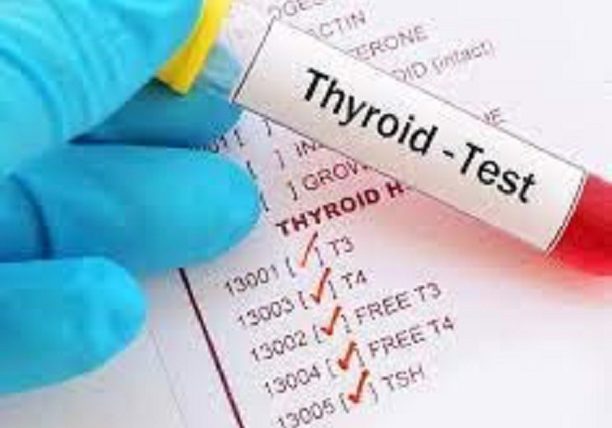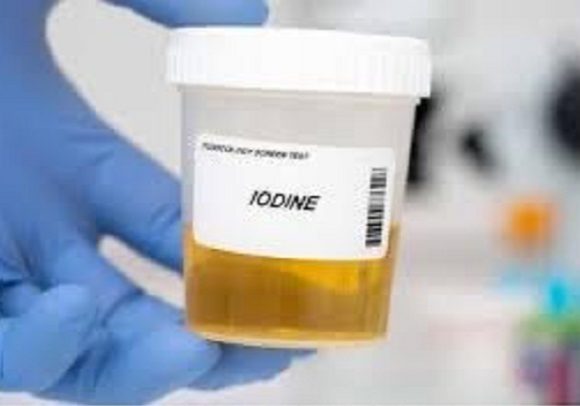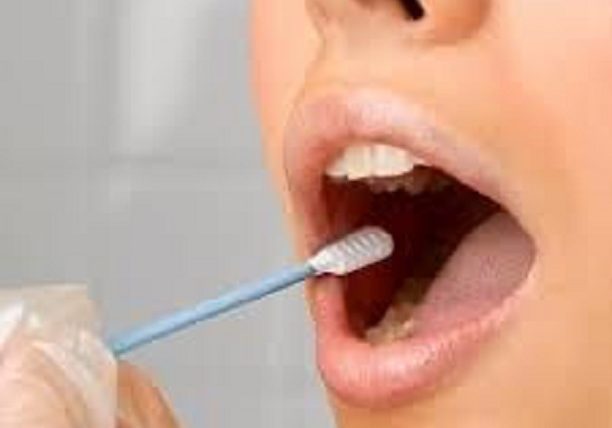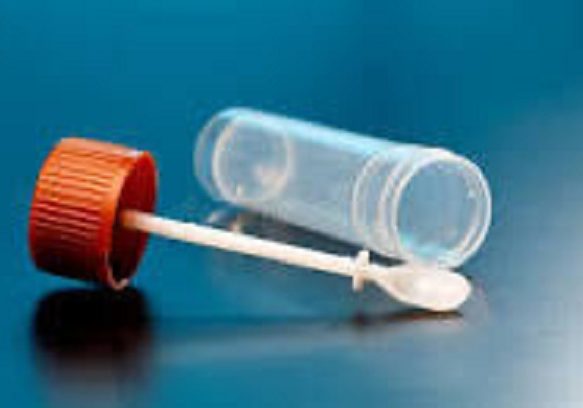What is functional testing?
Functional testing gives us an idea of how the body is functioning at a molecular, tissue or organ level. It can be invaluable in identifying the underlying cause/s of your health issues, whether that be biochemical, hormonal, gut flora imbalances, nutritional deficiencies, and/or metabolic function. Coupled with your health history, lifestyle factors and examination findings, this unique information facilitates the development of personalised and targeted health plans for treatment and prevention of diseases.
Functional tests may include the following:

Organic Acids Test (OAT)
Sample Required: Urine
The Organic Acids Test (OAT) is a comprehensive metabolic and nutritional snapshot of your overall health. The test provides insight into metabolic products (organic acids) which give a view into your body’s cellular metabolic processes, evaluates yeast and bacterial overgrowth, vitamin and antioxidant levels, fatty acid metabolism, neurotransmitter levels, inborn errors of metabolism (including oxalate levels), mitochondrial function, oxidative stress, detoxification, and much more. Identifying metabolic blocks that can be managed nutritionally allows individual tailoring of interventions that maximise your response to naturopathic remedies and leads to enriched health outcomes.
Key Advantages:
- Provides an evaluation of intestinal yeast and bacteria
- Functional vitamin and mineral status
- Amino acid insufficiencies like carnitine and NAC
- Oxidative damage and antioxidant need
- Phase I & Phase II detoxification capacity
- Functional B-complex vitamin need
- Neurotransmitter metabolites
- Mitochondrial energy production
- Methylation sufficiency
- Lipoid acid and CoQ10
Food Allergy/Intolerance Testing
Sample Required: Serum
Dietary Antigen Testing helps identify and address food allergies and food sensitivities. The most comprehensive test combines IgE, IgG, IgG4 and complement (C3d) reactions allowing for one of the most thorough assessments of immune activity to specific foods. Overt IgE-mediated food allergies can lead to hives, anaphylaxis, or digestive issues while delayed food sensitivities (IgG and IgG4) are linked to sinus problems, acne, gas, bloating, fatigue, constipation, autism, irritable bowel syndrome, and even depression. Identifying and eliminating food sensitivities can also assist in the healing of intestinal permeability.


Comprehensive Stool Analysis
Comprehensive Stool Analysis can objectively evaluate the status of beneficial and imbalanced commensal bacteria including Clostridium species, pathogenic bacteria, yeast/fungus and parasites. It can also supply important information regarding the efficiency of digestion and absorption through the measurement of the fecal levels of elastase (pancreatic exocrine sufficiency), fat, muscle and vegetable fibers, and carbohydrates.
Precise identification of pathogenic species and susceptibility testing greatly facilitates selection of the most appropriate treatment agents.
Indications for stool analysis may include the following:
- Gastrointestinal Symptoms
- Autoimmune Disease
- Joint Pain
- IBD/IBS
- Inflammation
- Food Sensitivities
- Nutritional Deficiencies
- Skin Conditions (Atopic Dermatitis)

Cortisol Awakening Response
Sample required: Saliva
Looks at the overall diurnal pattern of free cortisol, and the total and distribution of cortisol metabolites to give an insight into stress response and factors that may be contributing to many conditions. When we open our eyes upon waking, cortisol levels naturally begin to rise by an average of 50%. 30 minutes after waking, cortisol levels will still show this sharp increase. By 60 minutes after waking, cortisol levels have peaked and begin to decline. Measuring this rise and fall of cortisol levels at waking can be used as a “mini stress test”. The magnitude of the the cortisol awakening response (CAR) gives us some idea of the HPA axis's ability to activate and respond to the magnitude of all the stressors (normal physiological stress, self-perceived emotional stress, physical stress, etc.) that face us as we awaken and begin the day.
Decreased CAR has been associated with the following conditions:
- PTSD
- Chronic Pain
- Systemic hypertension
- Functional GI diseases
- Postpartum depression
- Chronic Fatigue Syndrome
- Major depression
- Insomnia (but not isolated night waking)
- Autoimmune diseases
- Atopic and allergic conditions
- Low frequency noise exposure
- Low socioeconomic status
- Perceived high stress
- Cushing's Disease
- Addison's Disease
Increased CAR is associated with the following conditions:
- Visceral obesity in men
- Major depressive episodes
- Upper respiratory illnesses
- Bipolar disorder
- Fibromyalgia in women reporting abuse during childhood
- Women with BPD (borderline personality disorder)
- Smoking (to a small degree)
- Chronic stress and worrying
- Work overload
Environmental Mould Toxicity
Sample Required: Urine
Mycotoxins are some of the most prevalent toxins in the environment. Mycotoxins are metabolites produced by fungi like mould, which can infest buildings, vehicles and foodstuffs. A majority of mycotoxin exposures are through food ingestion or airborne exposure. Fungi are able to grow on almost any surface, especially if the environment is warm and wet. Inner wall materials of buildings, wall paper, fiberglass lass insulation, ceiling tiles and drywall are all good surfaces for fungi to colonise. These fungi then release mycotoxins into the environment which may cause symptoms of many different chronic diseases and can cause symptoms such as runny nose and congestion, eye irritation, sneezing, coughing, sore throat, skin rash, headache, lung irritation, wheezing, liver disease, dizziness, confusion, fever, irritability, vomiting, difficulty concentrating, anorexia, allergic rhinitis, asthma, nausea, fibromyalgia, irritable bowel syndrome, diarrhea, food allergies, fatigue, thyroid irregularities, blurred vision, balance problems and seizures


Toxic and Essential Metals/Elements Panel
Sample options required: Whole blood/hair/urine/stool
Screens for a broad range of potentially toxic and nutrient metals to show elevated exposure to toxic metals or imbalances of nutrient metals in whole blood, including the body’s mercury burden and its ability to eliminate it. Included in the list of nutrient elements tested are: Calcium, Copper, Lithium, Magnesium, Manganese, Molybdenum, Selenium, Zinc. Potentially Toxic Metals screen for include: Antimony, Arsenic, Cadmium, Cobalt, Lead, Mercury, Silver, Strontium
Glyphosate Test
Sample Required: Urine
Recent health concerns have been raised over the effects of exposure to chemical ingredients found in herbicides. Glyphosate is the world’s most widely produced herbicide and is the primary toxic chemical in Roundup™, as well as in many other herbicides. Studies have indicated that glyphosate could be toxic and may cause endocrine disruption, oxidative stress, disrupt healthy microbial balance and is a potential carcinogen.


Small Intestine Bacterial Overgrowth (SIBO)
Sample required: Breath test
Normally, bacteria are found in the trillions in the large intestine, where they perform various functions for the human body.
SIBO is defined as an increase in the number of bacteria, and/or changes in the types of bacteria present in the small intestine. In most patients, SIBO is not caused by a single type of bacteria, but an overgrowth of the bacteria that should normally be found in the colon.
SIBO has been shown to negatively affect both the structure and function of the small bowel. It may significantly interfere with digestion of food and absorption of nutrients, primarily by damaging the cells lining the small bowel (the mucosa). Additionally, this damage to the small bowel mucosa can lead to impaired gut permeability which is known to have a number of potential complications including immune reactions that cause food allergies or sensitivities, generalized inflammation, and autoimmune diseases.
Common symptoms of SIBO:
- Postprandial bloating/abdominal distention with associated discomfort
- Gas and belching
- Food Intolerances
- Constipation (generally associated with methanogenic bacteria)
- Diarrhea (generally associated with hydrogenic bacteria)
- Immune activation (eg food sensitivities)
- Nutrient deficiencies ie vitamin B12 & Iron
- Weight loss / weight gain
- Fatigue or brain fog
- Fibromyalgia
Omega-3 Index
Sample required: finger prick blood spot
The Omega-3 Index Test is a simple, easy-to-use validated test that measures red blood cell (RBC) omega-3 essential fatty acid (EPA and DHA) status to personalise supplemental and dietary prescriptions. A correlation has been found between an individual’s omega-3 index and their risk of certain conditions including cardiovascular health issues.
- The test specifically measures:
- The omega-3 index (total combined EPA and DHA)
- Omega-6:Omega-3 ratio
- EPA:Arachidonic acid ratio
- Total trans fats
- 24 fatty acids (FAs) - Omega-3 FAs; Omega-6 FAs; Monounsaturated FAs; Saturated FAs; Trans FAs


Methylation Profile
Sample required: plasma
Normal metabolism of methionine is critical for cellular methylation of DNA, proteins and neurotransmitters. This test evaluates plasma levels of Methionine, Cysteine, SAMe, SAH, Hcys and Cystathionine which provides the important “methylation index,” a ratio of SAMe to SAH which can help appropriately guide nutritional support.
This test may be useful in:
- Autism
- Cancer Risk
- Cardiovascular Disease
- Detoxification Impairment
- Down Syndrome
- General Health and Longevity
- Genetic Disorders
- Immune Dysfunction
- Neuro-degenerative disorders
- Diseases Nutritional Deficiencies
- Psychiatric Disorders
- Stress (Oxidation/ Inflammation)
Epigenetic TruAge
Sample required: blood spot
This is an epigenetic test able to analyze the changes to your DNA and to determine how these changes actually affect your body and your health. This tests provides a comprehensive analysis of methylation markers which provides information on biological age (epigenetic age) as opposed to chronological age, including steps on how to reduce overall ageing.


Complete Thyroid Panel
Thyroid dysfunction is one of the most under-addressed conditions in healthcare. There are thyroid receptors on every tissue in the body, demonstrating its necessity for all systems. Thyroid hormones impact energy production, cognitive function, mood, emotions, concentration, memory, and attention. The Complete Thyroid Profile measures thyroid gland activity, peripheral conversion of thyroid hormone, and thyroid autoantibodies.
Symptoms of Hypothyroidism:
- Depression
- Dry skin and brittle nails, or hair loss
- Feeling tired or weak
- Increased sensitivity to cold
- Heavy or irregular menstrual cycles
- Obesity
- Joint Pain
- Infertility
- Constipation
- Memory issues or unclear thinking
- Hashimoto’s
Symptoms of Hyperthyroidism:
- Nervous or moody
- Shaky hands, fast heartbeat
- Sensation of being hot and sweaty
- Increased bowel movements
- Fine, thin hair, and hair loss
- Weight loss without a change in eating patterns
- Difficulty concentrating
- Sleep problems or restlessness
- Goiter or thyroid nodules
- Weak, tired, fatigued
Iodine Test
Sample required: urine
Iodine is and essential element required for the normal function of the thyroid gland and the immune system, and the integrity of breast tissue.
Useful for:
- Thyroid function
- Immune response
- Fatigue
- Estrogen metabolism

Environmental Pollutants
GPL - Tox Test
Sample Required - Urine
Every day, we are exposed to hundreds of toxic chemicals through products like pharmaceuticals, pesticides, packaged foods, household products, and environmental pollution. As we have become more exposed to chemical-laden products and to toxic chemicals in food, air, and water, we have been confronted with an accelerating rate of chronic illnesses like cancer, heart disease, chronic fatigue syndrome, chemical sensitivity, autism spectrum disorders, ADD/AD(H)D, autoimmune disorders, Parkinson’s disease, and Alzheimer’s disease.
- This panel offers you comprehensive testing to assess exposure to common environmental toxins and the damage that can be caused by this exposure, all at a great value, and all from one urine sample.
- Screens for 172 different environmental pollutants using 18 different metabolites, including benzene, phthalates, acrylamide, perchlorate, organophosphate pesticides and more.
- Uses the power of advanced mass spectrometry (MS/MS), which is necessary to detect lower levels of certain genetic, mitochondrial, and toxic chemical markers that conventional mass spectrometry often misses.
- Includes Tiglylglycine, a marker for mitochondrial damage, which is often seen in chronic toxic chemical exposure


DNA Testing
Genetic testing and nutrigenomics are the future of individualised healthcare. By placing emphasis on the inter-relationship between genes, nutrition and lifestyle, genetic tests provide a valuable tool for the management of health and wellness. The use of cutting- edge molecular technologies provides high-quality testing, performed according to the highest international standards. There is the option for testing 1-8 panels: DNA Health, DNA-Diet, DNA-Oestrogen, DNA-Sport, DNA Mind, DNA GrowBaby, DNA Skin, MedCheck.
DNA Health
Concerned with optimising energy, wellbeing and health by making better lifestyle and diet choices, and using supplements tailored to offset any particular nutritional deficit or genetic shortcoming.
The DNA Health approach establishes the optimal nutrition necessary for good health, energy, longevity and risk mitigation. DNA Health tests for 27 genes involved in the following biological processes:
- Methylation
- Inflammation
- Oxidative Stress
- Lipid/Cholesterol metabolism
- Bone health
- Insulin sensitivity
- Food/Nutrient response
DNA Diet
In recent years, the Human Genome Project has led scientists to a deeper understanding of the complex molecular processes governing the human body. One of its significant findings was the variability in individual responses to diet, which can now be explained at the genetic level. Variations in DNA can have a profound effect on nutritional requirements, metabolic efficiencies and an individual’s ability to lose and maintain their weight.
DNA Diet provides insight into:
- Individual diet and exercise responsiveness
- Optimal macronutrient distribution for effective weight loss
- Weight-loss resistance and/or weight gain after weight loss
- Optimal exercise intensity for weight loss
DNA Oestrogen
Cumulative exposure to oestrogen has been shown to have a high correlation to the development of breast cancer. The DNA Oestrogen test is therefore particularly important for women considering oral contraceptives, hormone replacement therapy, bio-identical supplementation, in vitro fertilisation or who have been diagnosed with estrogen receptor-positive breast cancer. The DNA Oestrogen genetic test panel tests for high-risk polymorphisms that have been shown to affect the metabolism of oestrogen and related compounds.
Key Advantages:
- Identifies polymorphisms in key genes involved in metabolising oestrogen and related compounds
- Impact of high-risk polymorphisms
- Intervention strategies for carriers
- Personal risk factors associated with HRT, Oral Contraceptives, Bio-Identical supplementation and IVF
DNA Sport
Variation in genotypes, as expressed through DNA, has been estimated to account for 66 % of athletic success.
Despite the strength of genetic research data and the obvious notion that we are all different, most exercise programmes follow a similar formula: aerobic training for cardiovascular health and weight loss and weight training for muscle strength and weight gain. However, we now have enough scientific understanding to realise that in order to attain the most successful target training outcomes, the ratio between the power training and aerobic exercise that constitutes a training programme should vary widely between individuals. This notion applies even between different individuals seeking the same goal metric, such as fat-loss or muscle gain.
Key advantages:
- Indicate individual exercise and dietary responsiveness
- Appropriate exercise training choices for the expression of optimum health and physical performance
- Training patterns and nutritional intake for optimal recovery times
- ‘Prehabilitative’ exercise and nutritional strategies for injury avoidance
DNA Skin
Based on the results from the DNA Skin test, personalised lifestyle, nutrition, nutraceutical and cosmeceutical recommendations can be given for improved skin care and to decrease the visible signs of ageing. DNA Skin can help identify potential risk factors and inherent propensities to a range of skin conditions and qualities, from oily skin to freckling.
DNA Skin tests for 19 gene variations involved in the following areas:
- Firmness and elasticity
- Sun sensitivity & pigmentation
- Sun damage, protection & repair
- Antioxidant status
- Inflammation
DNA Mind
According to research, neuropsychiatric disorders account for up to 25% of all disability-adjusted life years. Whilst the heritability of these mental disorders is significant, environmental factors also factor into their development. Genetic variations involved in key biological processes that contribute toward the risk of development of mental health disorders may give insights to the prevention, diagnosis and treatment of the disease.
The DNA Mind test analyses 30 genes which have been shown to have significant associations with key mental health disorders, and reports on the following areas:
- Neurodegenerative disorders
- Alzheimer’s Disease, Dementia, Cognitive Decline
- Addictive behaviour
- A risk for Alcohol, Nicotine, Cannabis & Opioid Dependence; Psychosis response from Cannabis use; Eating Disorders (Binge Eating)
- Adrenaline-seeking
- Risk-taking behaviour
- Mood disorders
- Depression, Bipolar, Anxiety and Post-Traumatic Stress
DNA GrowBaby
GrowBaby is a genetic test for the mum-to-be. It is designed to help better understand the function of key biological pathways that influence maternal and foetal health. The report offers valuable insights into how using gene-based personalised diet, supplement, and lifestyle interventions can optimize the health outcomes for mum and baby.
DNA GrowBaby analyses 27 genes associated with the functioning of key biological pathways that influence maternal and foetal health.
- Lipid metabolism
- Inflammation
- Detoxification – Phase 1/Phase 2
- Methylation
- Cell signaling
- Monoamine oxidase metabolism
- Neurotrophic pathway
- Progesterone metabolism
- Melatonin metabolism
- Insulin sensitivity, secretion and metabolism
- Vitamin D requirements
MedCheck
There is a great deal of variability in how a patient responds to medications due to the genes that govern drug metabolism. A pharmacogenomics test gives insight into how each patient metabolises, transports, and binds specific prescription drugs, which in turn allows practitioners to prescribe those compounds that are most likely to prove efficacious, to avoid those that will not, and in many instances to adjust doses to safe yet therapeutic levels. Such a personalised approach to medicine has the power to produce better results, particularly for individuals whose genetic profile puts them at risk of experiencing either treatment failure or an adverse reaction from a given drug.
Patients most likely to benefit from MedCheck testing include those:
- Experiencing side effects to specific medications
- Not responding to specific medications
- Requiring doses outside the recommended range
- Planning to start on a new medication
